FELBAMATE - ORAL
PHONETIC PRONUNCIATION: (fel-BAM-ate)
COMMON BRAND NAME(S): Felbatol
GENERIC NAME(S): felbamate
Uses
USES: Felbamate is used to treat severe seizures. This medication should be used only when you cannot take other medications or when other medications have not been able to control your seizures. Felbamate is known as an anticonvulsant or anti-epileptic drug.
How to use FELBAMATE - ORAL
HOW TO USE: Read and sign the Informed Consent form provided by your doctor. Read the Medication Guide provided by your pharmacist before you start taking felbamate and each time you get a refill. If you have any questions, ask your doctor or pharmacist before starting felbamate. Take this medication by mouth with or without food as directed by your doctor, usually 3 to 4 times a day. Take with food or milk if stomach upset occurs. If you are using the liquid form of this medication, shake the bottle well before each dose. Carefully measure the dose using a special measuring device/spoon. Do not use a household spoon because you may not get the correct dose. The dosage is based on your medical condition and response to treatment. For children, the dosage is also based on weight. To reduce your risk of side effects, your doctor may direct you to start this medication at a low dose and gradually increase your dose. Take this medication regularly to get the most benefit from it. To help you remember, take it at the same times each day. Do not stop taking this medication without consulting your doctor. Seizures may become worse when this drug is suddenly stopped. Your dose may need to be gradually decreased. If you are already taking other anti-seizure medications, carefully follow your doctor's directions for adjusting the dose of these other medications when you start taking felbamate. Tell your doctor if your seizures get worse.
Side Effects
Precautions
Interactions
Overdose
Images
Reviews
Faq for FELBAMATE - ORAL
Felbamate is an oral medication used to treat seizures in patients with epilepsy.
Felbamate works by decreasing abnormal electrical activity in the brain, which helps to prevent seizures.
Common side effects of felbamate include nausea, vomiting, headache, dizziness, difficulty sleeping, and loss of appetite.
Felbamate is approved for use in children 2 years of age and older, but the dosage and administration should be determined by a healthcare professional.
Felbamate is classified as a pregnancy category C medication, meaning there may be a potential risk to the fetus. It should only be used during pregnancy if the potential benefits outweigh the risks and under the supervision of a healthcare professional.
Felbamate should be taken exactly as prescribed by a healthcare professional. It is usually taken two to four times daily with or without food.
Felbamate can interact with other medications, so it is important to inform your healthcare provider about all the medications you are taking. They can determine if any adjustments need to be made.
The effectiveness of felbamate may vary from person to person. It typically takes a few weeks to see the full benefits of the medication.
Yes, felbamate can cause allergic reactions such as rash, itching, swelling, severe dizziness, or difficulty breathing. If you experience any of these symptoms, seek medical attention immediately.
Warning
WARNING: Severe (sometimes fatal) blood/bone marrow problems (such as low red/white blood cells and platelets) and liver problems have occurred with felbamate. Felbamate should be used only by people with severe seizures (epilepsy) that cannot be controlled with other medications. Do not use this drug if you have liver problems. Discuss the risks and benefits with your doctor before starting felbamate. Tell your doctor right away if you have signs of infection (such as sore throat that doesn't go away, fever, chills), signs of anemia (such as unusual tiredness), easy bruising/bleeding, or signs of liver problems (such as nausea/vomiting that doesn't stop, stomach/abdominal pain, yellowing eyes/skin, dark urine). Usually, people who have liver problems while taking this drug should not start taking it again. Your doctor will check certain blood tests (liver function, complete blood count) and may have you see a doctor who treats blood/bone marrow problems before you start felbamate and while you use this drug. Blood/bone marrow problems may also occur after you stop taking the drug. Blood tests may be needed for some time after you stop taking felbamate. Keep all medical and lab appointments.
Disclaimer
IMPORTANT: HOW TO USE THIS INFORMATION: This is a summary and does NOT have all possible information about this product. This information does not assure that this product is safe, effective, or appropriate for you. This information is not individual medical advice and does not substitute for the advice of your health care professional. Always ask your health care professional for complete information about this product and your specific health needs.
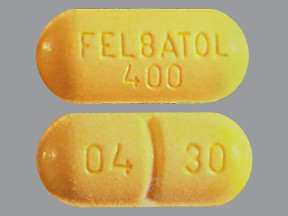
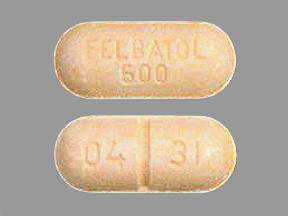
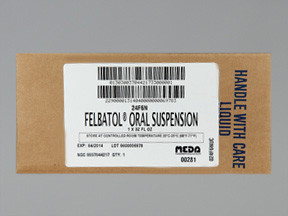
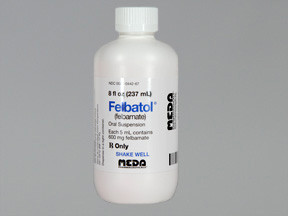

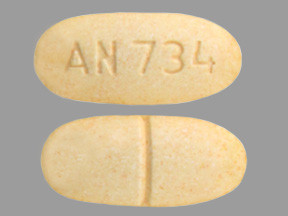
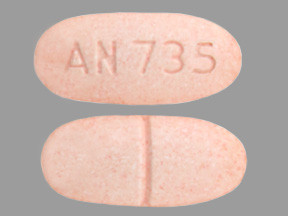
No Reviews Yet